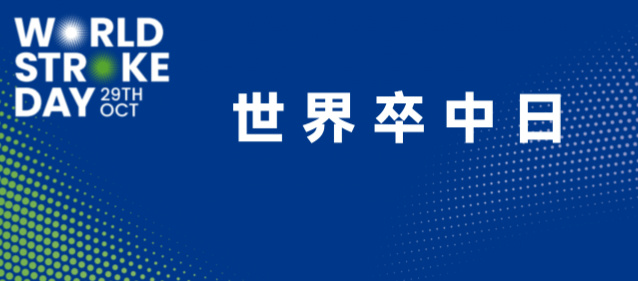SHP2和CXCR1/2联合抑制促进非小细胞肺癌的抗肿瘤T细胞反应
SHP2抑制剂(SHP2i)以单独和各种组合的临床试验正在针对RAS/ERK途径过度激活的多种肿瘤进行。除了潜在的肿瘤细胞自主作用外,SHP2还对肿瘤微环境(TME)具有重要作用,包括对抗肿瘤免疫的潜在复杂作用。SHP2i的大多数临床前研究都使用了缺乏适应性免疫反应或很少具有同源人类疾病突变谱且无法复制组织特异性免疫的模型。
SHP2抑制剂(SHP2i)以单独和各种组合的临床试验正在针对RAS/ERK途径过度激活的多种肿瘤进行。除了潜在的肿瘤细胞自主作用外,SHP2还对肿瘤微环境(TME)具有重要作用,包括对抗肿瘤免疫的潜在复杂作用。SHP2i的大多数临床前研究都使用了缺乏适应性免疫反应或很少具有同源人类疾病突变谱且无法复制组织特异性免疫的模型。为此,更好地反映人类癌症的原位和免疫活性肿瘤模型,可能给鉴定增强SHP2i免疫调节作用的更有效、合理的组合策略,提供重要见解。
Clinical trials of SHP2 inhibitors (SHP2i) alone and in various combinations are ongoing for multiple tumors with over-activation of the RAS/ERK pathway. In addition to its potential tumor cell-autonomous actions, SHP2is have important effects on the tumor microenvironment (TME), including potentially complex effects on anti-tumor immunity. Most pre-clinical studies of SHP2is have used models lacking adaptive immune responses or rarely harbor the mutational spectrum of the cognate human disease and fail to reproduce tissue-specific immunity. To this end, orthotopic and immune-competent tumor models that better reflect human cancers might provide important insights into identifying more efficacious and rational combinational strategies that enhance immune-modulatory effects of SHP2is.
方法:为了表征SHP2抑制的肿瘤细胞自主和非自主效应,我们在基因工程小鼠模型(GEMM)中进行了系统的TME分析,包括多色流式细胞术,免疫细胞耗竭实验和单细胞RNA-Seq。Kras-和Egfr-突变的非小细胞肺癌(NSCLC)连续磁共振成像(MRI)用于评估合理组合的功效,其逆转SHP2抑制对肿瘤相关免疫细胞的不利后果。此外,我们对来自KRASG12C抑制剂临床试验的治疗前和治疗后活组织检查样品进行RNA-seq,以观察其他RAS/ERK途径抑制是否在非小细胞肺癌患者中导致相同的不良免疫效应。
Methods:In order to characterize the tumor cell-autonomous and non-autonomous effects of SHP2 inhibition, we conducted systematic TME analysis including multi-color flow cytometry, immune cell depletion experiments and single cell RNA-Seq in genetically engineered mouse models (GEMMs) ofKras-andEgfr-mutant non-small cell lung cancer (NSCLC). Consecutive magnetic resonance imaging (MRI) was used to evaluate the efficacy of a rational combination which reversed the adverse consequences of SHP2 inhibition on tumor-associated immune cells. Moreover, we performed RNA-seq on pre- and post-treatment biopsy samples from KRASG12Cinhibitor clinical trials to see whether other RAS/ERK pathway inhibition results in the same adverse immune effects in NSCLC patients.
结果:我们发现SHP2i治疗耗尽肺泡和M2样巨噬细胞,并促进Kras和Egfr突变NSCLC中的B和T淋巴细胞浸润。然而,治疗还通过CXCR2配体的肿瘤内在的NF-kB依赖性产生增加肿瘤内粒细胞源性抑制细胞(GMDSC)。其他RAS/ERK途径抑制剂也在小鼠中诱导CXCR2配体和gMDSC流入,并且在KRASG12C抑制剂试验的患者的肿瘤中诱导CXCR2配体。组合的SHP2(SHP099)/CXCR1/2(SX682)抑制耗尽了S100a8/9高GMDSC的特定簇,产生具有强细胞毒性表型但也表达检查点受体NKG2A的Klrg1+CD8+效应T细胞,并且在Kras中增强存活率。
Results:We found that SHP2i treatment depleted alveolar and M2-like macrophages and promoted B and T lymphocyte infiltration in Kras- and Egfr-mutant NSCLC. However, treatment also increased intratumoral granulocytic myeloid-derived suppressor cells (gMDSCs) via tumor-intrinsic, NF-kB dependent production of CXCR2 ligands. Other RAS/ERK pathway inhibitors also induced CXCR2 ligands and gMDSC influx in mice, and CXCR2 ligands were induced in tumors from patients on KRASG12C-inhibitor trials. Combined SHP2 (SHP099)/CXCR1/2(SX682) inhibition depleted a specific cluster ofS100a8/9highgMDSCs, generatedKlrg1+ CD8+ effector T cells with a strong cytotoxic phenotype but with also expressing the checkpoint receptor NKG2A, and enhanced survival inKras-andEgfr-mutant models.
结论:研究表明抑制SHP2/RAS/ERK途径触发NF-κB依赖性CXCR2配体的上调和S100a8/9高GMDSC的募集,其抑制NSCLC中的T细胞。结合SHP2和CXCR2抑制剂阻断这种gMDSC移入,导致Th1极化增强,诱导具有高细胞毒活性的CD8+KLRG1+效应T细胞并改善多种NSCLC模型中的存活。实验结果主张在NSCLC患者中测试RAS/ERK途径/CXCR1/2/NKG2A抑制剂组合。
Conclusion:Our study shows that inhibiting the SHP2/RAS/ERK pathway triggers NF-kB-dependent upregulation of CXCR2 ligands and recruitment ofS100a8/9highgMDSCs, which suppress T cells in NSCLC. Combining SHP2 and CXCR2 inhibitors blocks this gMDSC immigration, resulting in enhanced Th1 polarization, induction of CD8+ KLRG1+ effector T cells with high cytotoxic activity and improved survival in multiple NSCLC models. Our results argue for testing RAS/ERK pathway/CXCR1/2/NKG2A inhibitor combinations in NSCLC patients.



.jpg)


